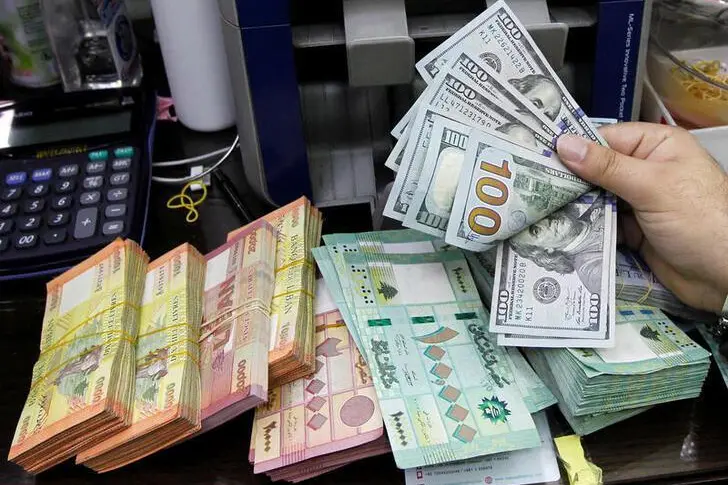PHOTO
BEIRUT - Leading Lebanese politicians said on Thursday they were blindsided by a plan to slash the official exchange rate, with the powerful Hezbollah group demanding a review of the decision and the finance ministry backing away from a Nov. 1 start date.
The ministry said on Wednesday the official exchange rate of 1,507 pounds per dollar would be replaced with one of 15,000, calling this a step towards unifying multiple rates that have emerged during Lebanon's three-year long financial crisis.
But after declaring a Nov. 1 implementation date, the ministry later linked the step to approval of a financial recovery plan, the latest version of which is being discussed in parliament.
Some economists and politicians saw this as a government retreat: the recovery plan, which must address a $72 billion hole in the national finances, has been in dispute since 2019.
The pound's market value currently stands at 38,000 to the dollar, a devaluation of more than 95% since Lebanon collapsed into a financial crisis that has plunged swathes of the population into poverty.
Hassan Fadallah, a senior Hezbollah lawmaker, told Reuters he had heard about the decision in the media.
"This decision was hasty and its results were not clearly studied, therefore we saw an attempt to retreat from it," said Fadlallah, whose heavily armed Shi'ite group has ministers in government. "We call for rescinding this decision."
Finance Minister Youssef Khalil could not be reached for comment. In a Reuters interview on Wednesday, he said the change was agreed with the central bank and would be discussed with stakeholders over the next month before implementation.
Ibrahim Kanaan, a senior lawmaker in President Michel Aoun's Free Patriotic Movement, told Reuters amending the official rate was necessary "but not in this way".
"I want to check if he will follow through on this or has to amend it a bit, because you cant do it this way," he said.
A finance ministry official referred Reuters to a statement late on Wednesday that said the move to a new official exchange rate was "conditioned on the approval of the recovery plan that is being worked on, and which should accompany that step".
Central bank governor Riad Salameh, in a text message to Reuters late on Wedesday, said implementing the decision "will require time", without elaborating.
'IT'S STILL CONFUSED'
Unifying the numerous exchange rates in Lebanon is one of several conditions set by the IMF for a badly needed aid package. The Fund has said this is crucial to boosting economic activity. The IMF said last week progress in implementing reforms remained very slow.
In addition to official and parallel market exchange rates, authorities have created several others during the crisis, including unfavourable rates applied to withdrawals of pounds from hard currency deposits in the frozen banking system.
Nasser Saidi, a former economy minister and central bank vice governor, said the government was backtracking.
"It's still confused. We still don't know exactly what the decision is, and who took it," he told Reuters, adding that exchange rate changes were the central bank's responsibility.
Were the official rate changed to 15,000, this would have big implications for the balance sheets of both the central bank and commercial banks - which both have large negative forex positions, the value of which would be multiplied by 10.
Such a move would also fuel inflation. Withdrawals from hard currency accounts at the 15,000 rate could only be financed by printing more pounds, leading to hyperinflation and a further depreciation of the pound on the free market, Saidi said.
(Additional reporting by Laila Bassam; Writing by Tom Perry, Editing by William Maclean)




















